All products featured are independently chosen by us. However, SoundGuys may receive a commission on orders placed through its retail links. See our ethics statement.
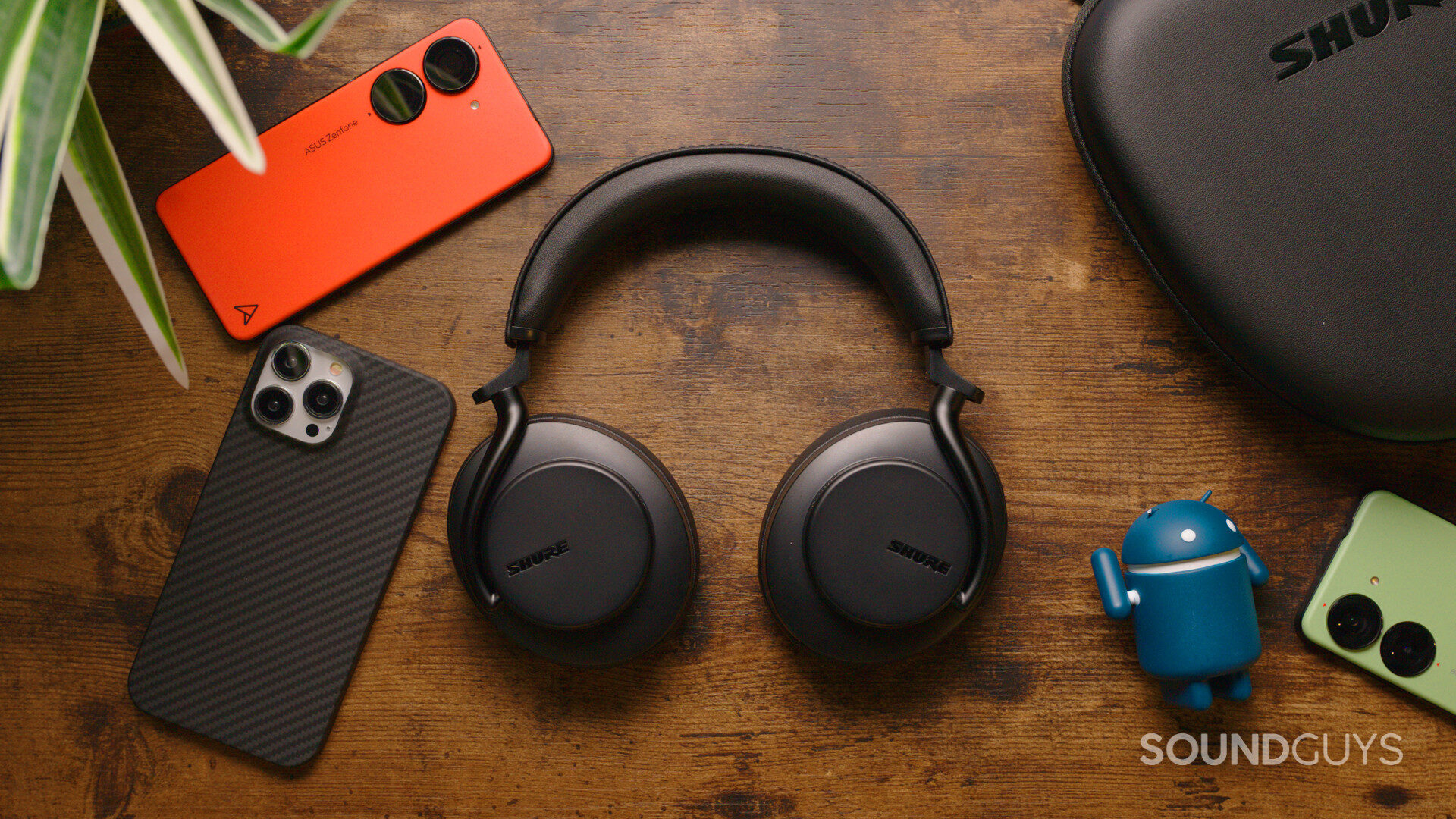
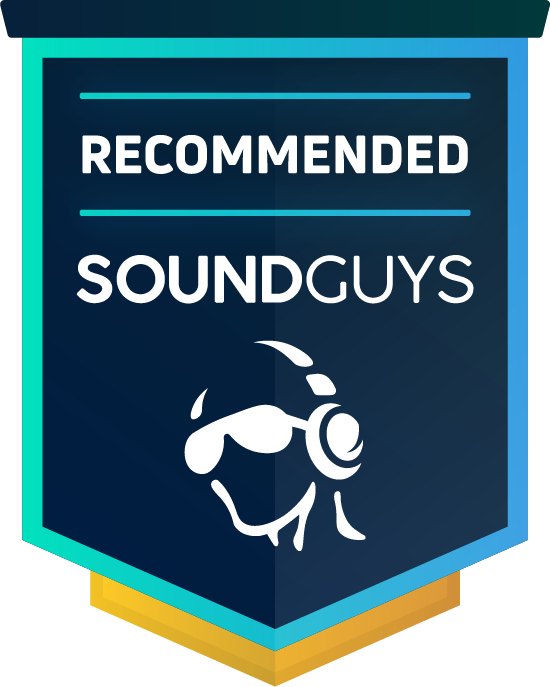
Shure AONIC 50 (Gen 2) review
Published onApril 3, 2025


Shure AONIC 50 (Gen 2)
Now that USB-C audio is getting more attention, what’s to become of the greats from the first time around? Shure’s AONIC 50 was our pick for the best USB-C headphones for several years, but the company has just released its follow-up with a second generation. Find out if they are any good in our review of the Shure AONIC 50 (Gen 2).
- April 3, 2025: We updated our measurement charts.
- July 22, 2024: We adjusted some formatting, added new images, and added the Focal Bathys as an alternative.
The Shure AONIC 50 (Gen 2) is for anyone looking to up their noise canceling headphone game but is unsatisfied with the Sony, Bose, and Apple options. Shure offers a competing form factor and a comprehensive app that could meet your needs if you’re looking for headphones with maximum device compatibility.
What’s it like to use Shure AONIC 50 (Gen 2)?
Like its predecessor, the Shure AONIC 50 (Gen 2) are a high-end set of Active Noise Canceling (ANC) headphones that competes with the likes of the Bose, Sony, and Sennheiser crowd. However, unlike these options, Shure has elected to honor its music production spirit by making headphones that can withstand rough treatment. The chassis of the headphones is aluminum, with a padded track-adjustable band and leather-analog ear pads. Though this headset is chunky at 334g, the weight is well-distributed and shouldn’t cause much neck strain.
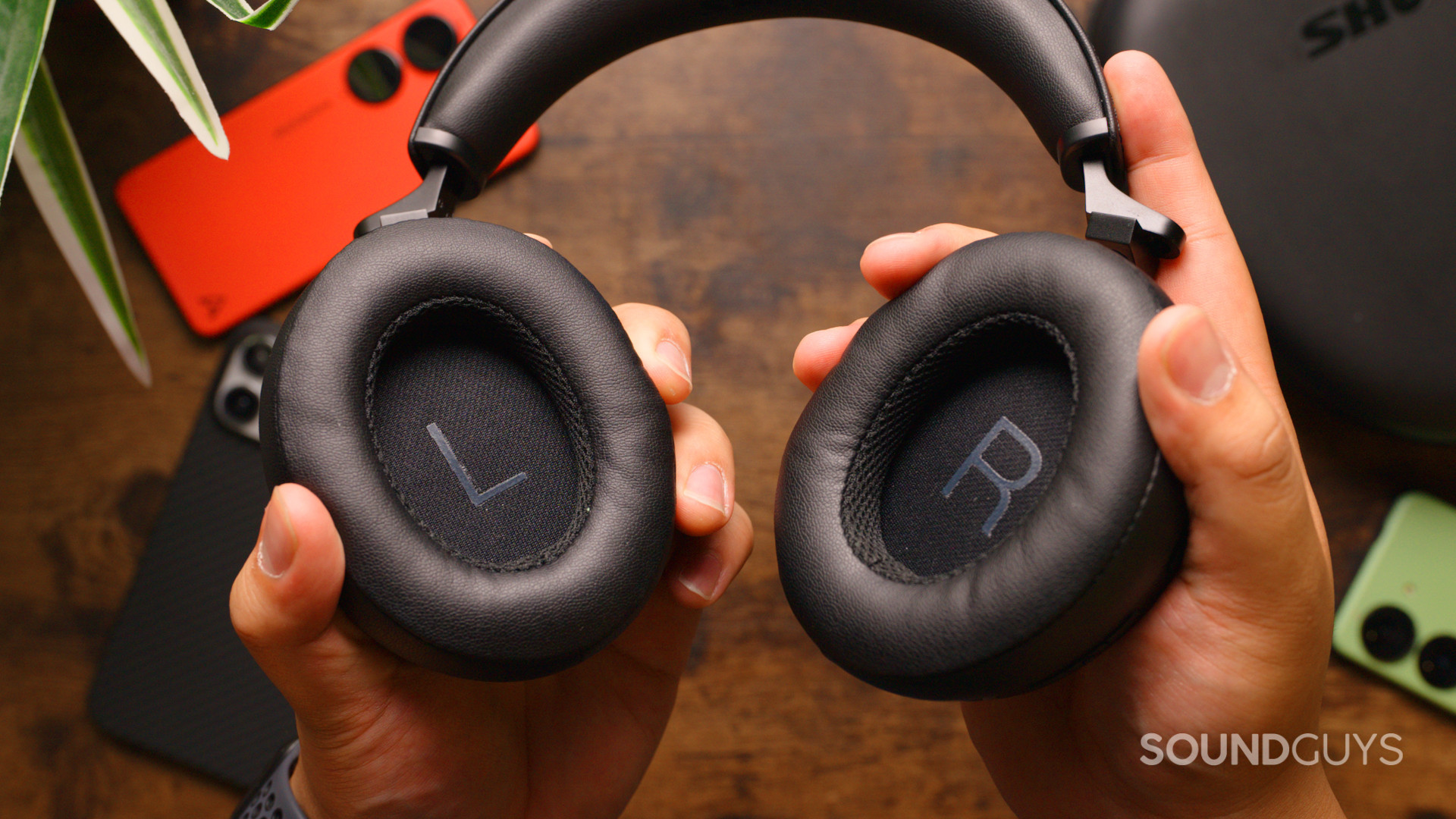
The Shure AONIC 50 (Gen 2) has 3.5mm analog and USB-C ports, though Shure placed one on each earcup. This might confuse listeners who are used to the cable hanging from the left side. If you ever find yourself in this conundrum, the yokes of the earcups hinge in the back, not the front. Speaking of the yokes, if you have longer hair, take extra special care in moving the ear cups around, as the hinge controlling the ear cups’ rotation tends to snag your locks when you do.
Sporting reasonably large ear cups and deep padding, the Shure AONIC 50 (Gen 2) is very comfortable for listening periods of over an hour. I found comfort to be excellent for the long haul, but some of my colleagues were not as impressed.
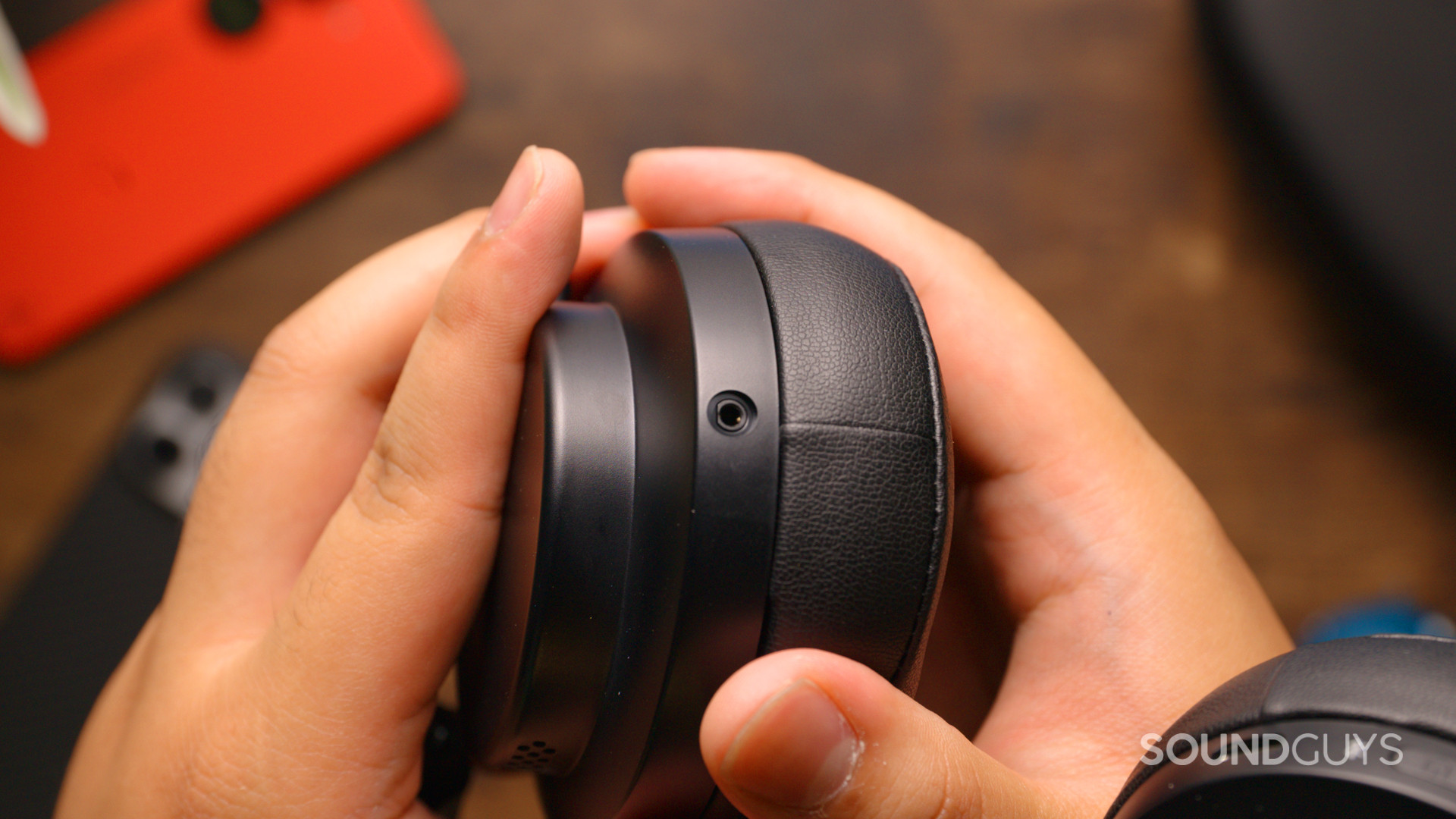
The headphones fold flat when not in use and can be stowed in the supplied carrying case for easy travel. They also include a USB-C cable, a 3.5mm cable, and assorted documentation.
How do you control the Shure AONIC 50 (Gen 2)?
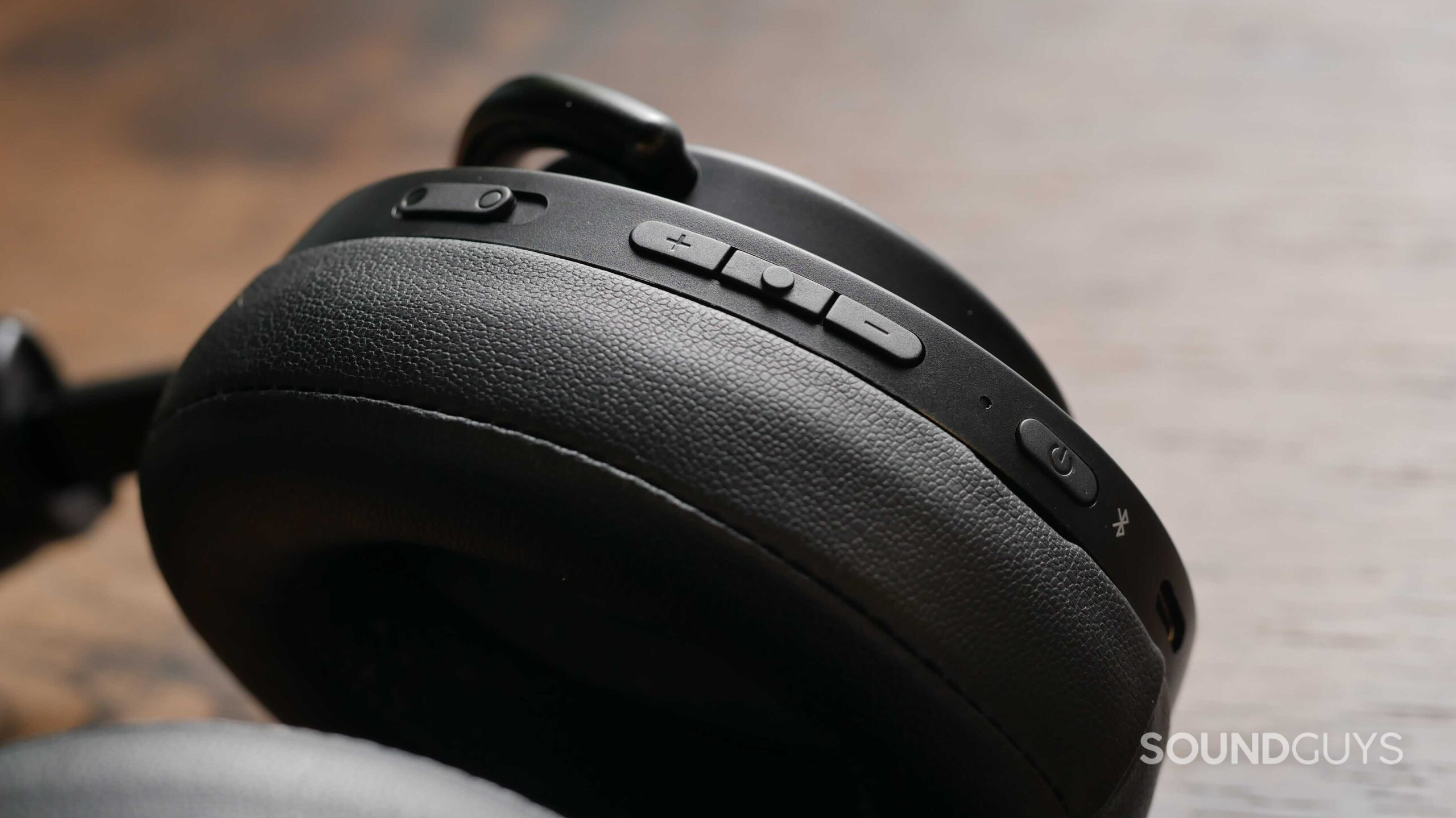
Controls for the Shure AONIC 50 (Gen 2) are primarily centered around the bottom of the right ear cup. We’re not huge fans of physical buttons, but the headphones fit well enough that the presses aren’t likely to dislodge your cans or compromise the seal.
| Button | Single press | Double press | Triple press | Long press |
|---|---|---|---|---|
| Button Power button | Single press Power on | Double press Check battery status | Triple press N/A | Long press Pair Bluetooth headphones |
| Button Center button | Single press Play / pause, Answer call | Double press Next track / Mute call | Triple press Previous track / hold call | Long press Voice assistant / Decline call |
| Button Volume buttons | Single press Volume up / down | Double press | Triple press | Long press |
There’s also a slider to switch between three modes: Environment mode (a transparency mode), ANC off, and ANC on. You can toggle these modes by moving the slider to the top, middle, or bottom, respectively.
Should you use the Shure PLAY app for the Shure AONIC 50 (Gen 2)?
Shure’s app is one of the best out there, in no small part due to the equalizer function, which means you can experiment with parametric EQ settings. It’s the best way to correct your headphone’s sound if you want to change something. There are EQ presets, a “spatialize” mode, and other customizations available to you if you like to tinker. Additionally, using the app to get firmware updates is important, though these will happen infrequently.
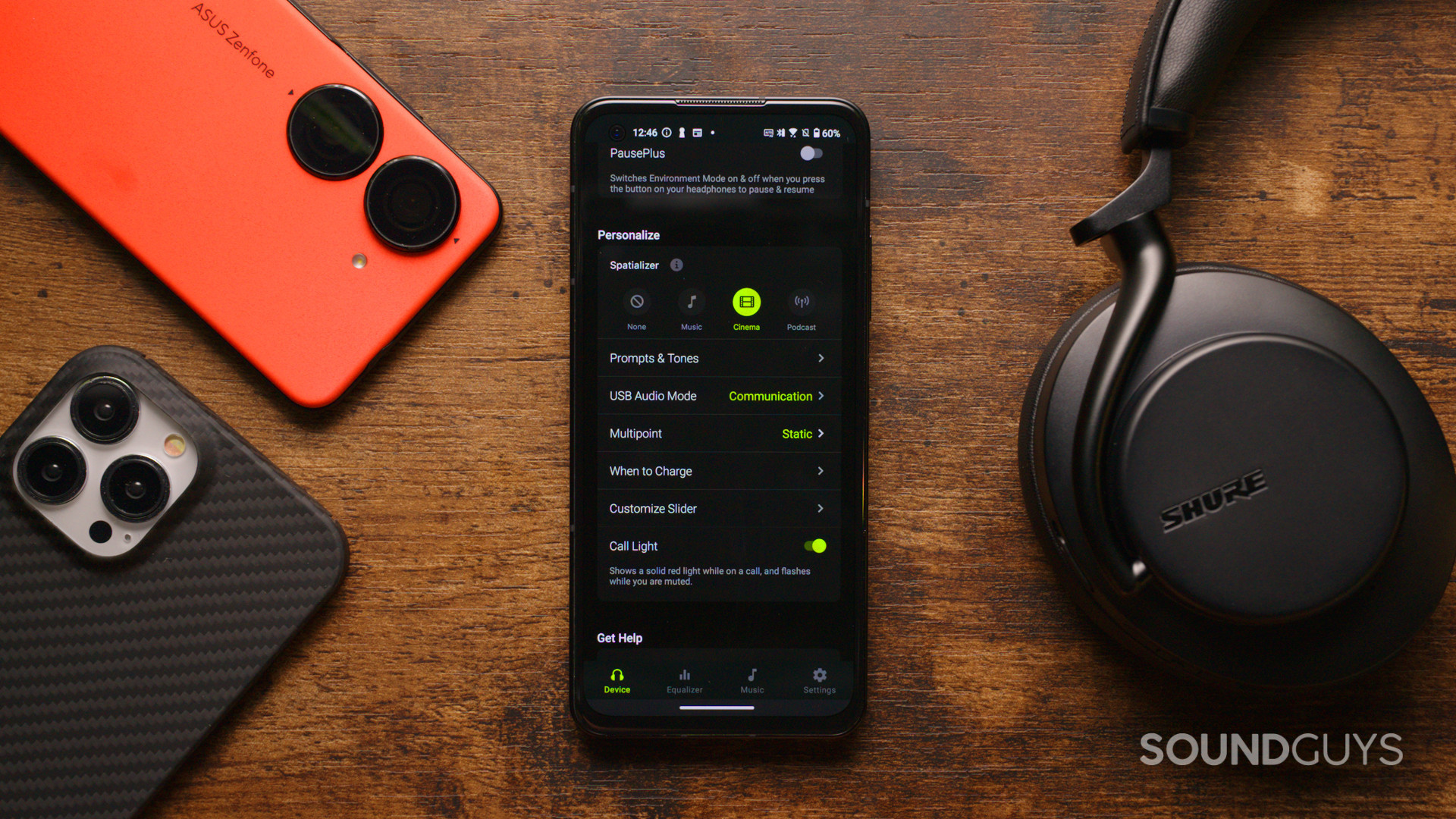
I strongly suggest you try the app to ensure you get the sound you want before deciding on the headphones.
Though the app does ask for some information from you, it isn’t the data vacuum that some other apps seem to be. You don’t have to use the app if you don’t want to.
How does the Shure AONIC 50 (Gen 2) connect?
Regarding device compatibility, few headphones are more versatile than the Shure AONIC 50 (Gen 2) because they can use 3.5mm, USB-C, and a deep bench of Bluetooth codecs. While this may seem overkill, headphones are in a weird spot now. Each connection method is important for different segments of users, and Shure as a company made their empire on supplying musicians, venues, and producers — so its equipment generally doesn’t eschew the headphone jack. But with the increased uptake of USB-C audio and the evolution of Bluetooth to support better codecs, it’s less common to pick one transmission method and call it a day.
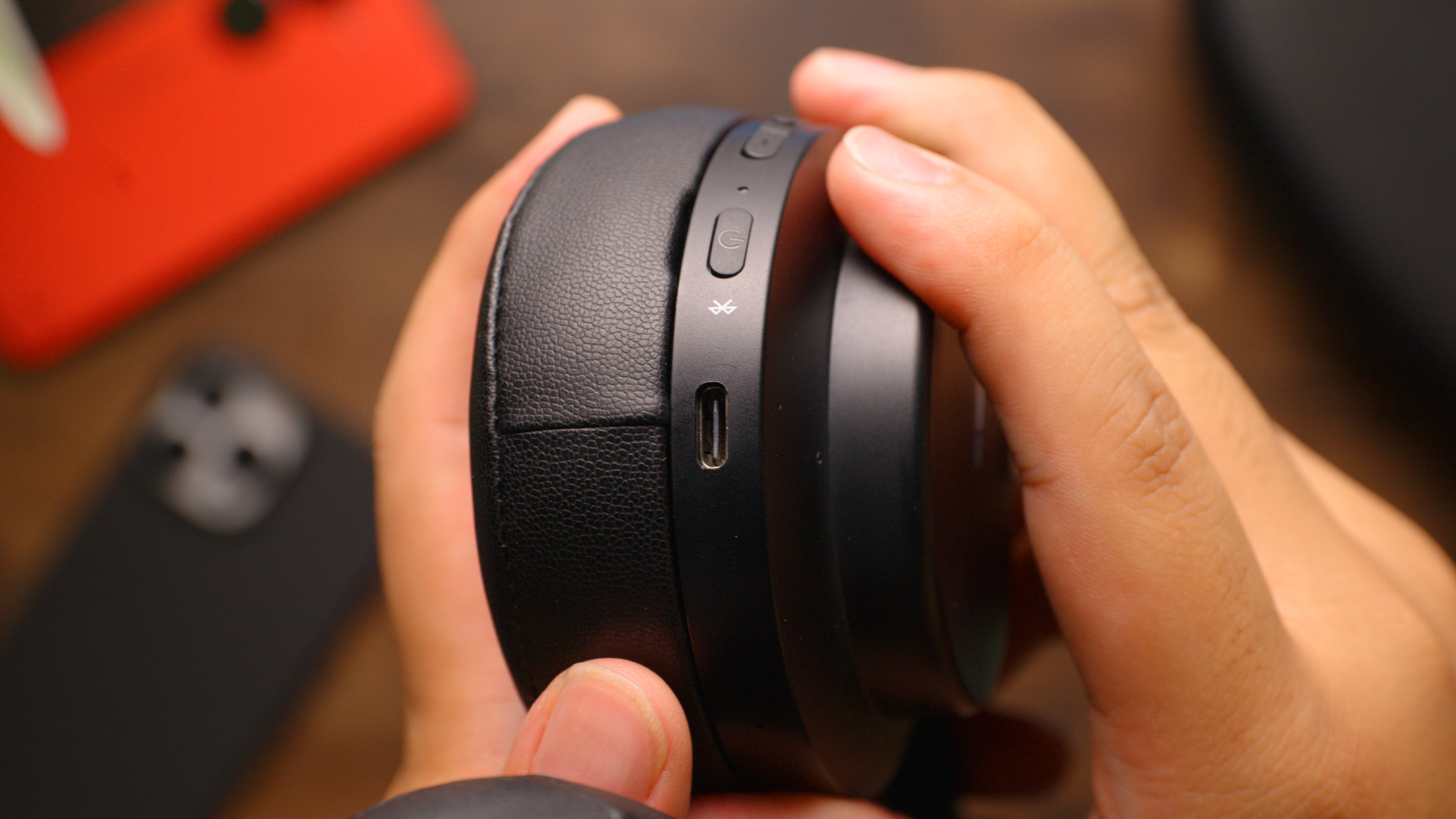
This means you don’t have to use different headphones for different contexts. For example, you can use the headphone cable when you use the headphones with older equipment, swap to Bluetooth when you’re out of the house, and finally use the USB-C cable at the computer when you can enjoy lossless audio (at work, for example).
If you think about codecs, you don’t need to. The Shure AONIC 50 (Gen 2) uses aptX, aptX HD, aptX Adaptive, aptX Voice, SBC, AAC, and LDAC. Not bad at all!
If you want wired audio, you must plug the appropriate cable into the headphones and your source and then turn the headphones on. Easy peasy.
Pairing the Shure AONIC 50 (Gen 2) over Bluetooth is a bit of a pain, depending on whether the headphones are trying to find their last paired device. We had some issues in the lab where we needed to pair to a new device, but we had to void the list of paired devices first. Assuming you’re pairing to your phone for the first time, the process should look something like this:
- Press and hold the power button of the Shure AONIC 50 (Gen 2) for several seconds until the indicator LED starts flashing blue
- Turn on your source device’s Bluetooth, and then scan for available devices
- Tap the Shure AONIC 50 (Gen 2) in the list of available devices and pair
If this doesn’t work, or your headphones don’t automatically go into pairing mode, you’ll need to empty the list of paired devices. To do this, you must:
- Plug your headphones into a charger
- Ensure the headphones are off
- Hold the power button for seven seconds
The list of paired devices should be cleared, and you can follow the above steps to attempt pairing again.
How long does the Shure AONIC 50 (Gen 2) battery last?
Under our standard test conditions with ANC, the Shure AONIC 50 (Gen 2) lasted for 41 hours and 29 minutes. It is a little short of the claimed 45-hour runtime but close enough to make it a reasonable estimate of battery life. Of course, your mileage could vary based on playback volume, ANC mode, or interspersing listening sessions with long periods of not charging. However, it’s a good ballpark for what you should expect.
Shure claims that 15 minutes of charging will net you about 5 hours of playback, and that’s about in line with most other headsets with QuickCharge.
How well does the Shure AONIC 50 (Gen 2) cancel noise?
As the Shure AONIC 50 (Gen 2) is a set of active noise canceling headphones, it should come as no surprise that one of its main selling points is its ability to dispel outside noise. However, the Shure AONIC 50 (Gen 2) isn’t in contention for the best regarding noise attenuation alone — it’s merely “okay.”
Loading chart ...
Slide the switch on the right ear cup all the way to the bottom, and you’ll notice that environmental noise under 1kHz gets 50 to 75% quieter. In real-world terms, this equates to between 10 and 20dB of reduction. Because the Shure AONIC 50 (Gen 2) has large ear cups that seal to your head well, the headphones have no difficulty in physically blocking out noise above 1kHz to the tune of 30-40dB, which means that more grating sounds like brake pads screeching will be reduced to under one-eighth the loudness they are without headphones on.
As an informal gut check, I took these on Vancouver’s SkyTrain to see how they did. Aside from the unreasonably loud screeching on the Millennium line, the Shure AONIC 50 (Gen 2) held their own quite well. This performance would be better suited to an airplane, but I don’t hop on flights every day.
How does the Shure AONIC 50 (Gen 2) sound?
Most people will find the Shure AONIC 50 (Gen 2) sound inoffensive, but anyone familiar with high-end audio will want to install Shure’s app to tinker. I say that because there’s a dip in the mids that affects vocals, guitars, and most instruments responsible for melody. Consequently, the Shure AONIC 50 (Gen 2) doesn’t match up as well to our headphone preference curve. Adding a wide-band boost of about 3-5dB around 420Hz goes a long way to lessening the annoyance of this feature. Don’t worry about clipping or adding noise; the app is smart enough to handle the gain and ensure these things don’t impact your listening.
You may notice that bass sounds are quite emphasized over mids, and highs are especially loud right out of the box. If you don’t do any equalizing, you may find that vocal-heavy tracks and classic rock will be challenging to enjoy. Highs are oddly loud, while bass is inconsistent at best. I discovered that September by Earth, Wind, and Fire lost the vocals too much for my tastes, and the horns were just too piercing.
Loading chart ...
However, none of the EQ presets address this, leaving you to guess how to adjust the parametric EQ if you find this aspect of the sound annoying. For EQ presets that come close, “Treble cut” and “Bass boost” are the most effective, but each has shortcomings. I will say that many of the EQ presets are varying shades of “bizarre,” and I didn’t find myself liking… any of them.
The EQ presets available in the Shure PLAY app will appeal to different readers. Still, none of the frequency responses here will make headlines, as they’re mainly geared towards niche purposes and not something you’d rock every day. Only the Bass boost and Treble cut EQs bring the sound closer to what we look for, but those both have some over-emphasis issues. I recommend playing with the parametric equalizer instead to tune things to your liking.
Vocal boost EQ
Loading chart ...
Treble Cut EQ
Loading chart ...
Treble Boost EQ
Loading chart ...
Loudness EQ
Loading chart ...
Bass Boost EQ
Loading chart ...
Bass Cut EQ
Loading chart ...
Can you use the Shure AONIC 50 (Gen 2) for phone calls?
The Shure AONIC 50 (Gen 2) has a decent mic array for phone calls and ANC. We post standardized samples for you to hear for yourself. Just keep in mind that call quality often has more to do with your network than the microphones in your headset, but it is worth seeing what the performance ceiling could be.
Shure AONIC 50 (Gen 2) microphone demo (Ideal conditions):
Shure AONIC 50 (Gen 2) microphone demo (Office conditions):
Shure AONIC 50 (Gen 2) microphone demo (Windy conditions):
How does the microphone sound to you?
Should you buy the Shure AONIC 50 (Gen 2)?
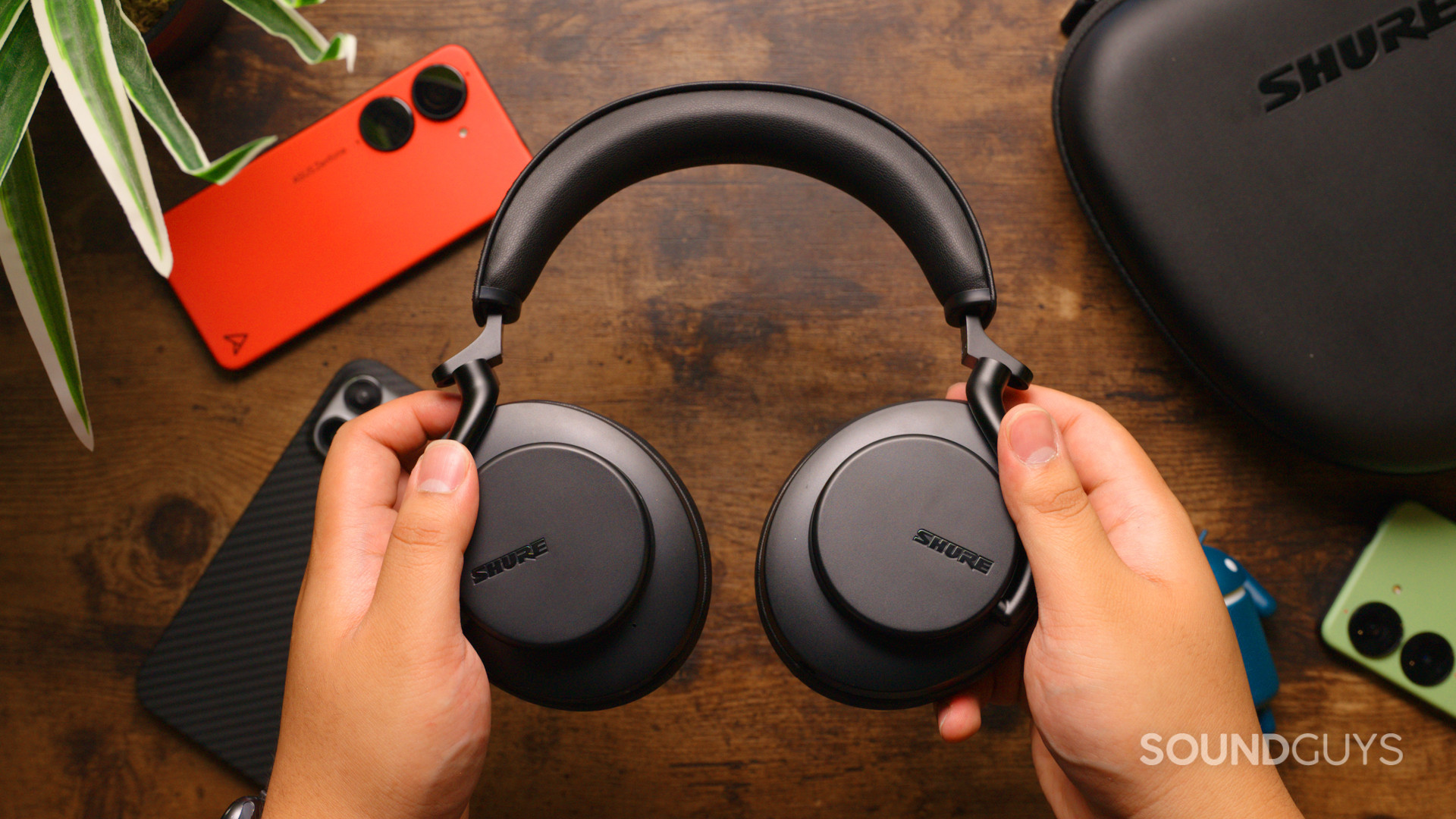
If you’re okay tinkering with the app of the Shure AONIC 50 (Gen 2), it’s a worthy buy. However, if you oppose adjusting your headphones’ sound, you may be better off looking at other high-end ANC options. Still, it’s tough to argue with at $349 when many competing options in this segment are closer to $400.
That said, if you’re willing to put up with some tinkering, there are a lot of rewards awaiting buyers of the Shure AONIC 50 (Gen 2). Having just about any Bluetooth codec out there, along with wired and USB listening? Not bad. It’s incredibly compelling now that many other headphone companies are getting in on the USB game about five years late.


What should you get instead of the Shure AONIC 50 (Gen 2)?
If you like what the Shure AONIC 50 (Gen 2) has going on, but you’re either looking to spend less or get more, there are a few more options. The conversation begins and ends with the Sennheiser MOMENTUM 4 Wireless $289.23 at Amazon. At a similar price, the Sennheiser headphones offer the same wired listening options, a kitchen-sink approach to Bluetooth codecs, and good sound quality. The ANC performance is similarly middling, but its transparency mode is hit or miss. Still, it’s a lighter headset that uses touch controls, so it could be a winner for you.
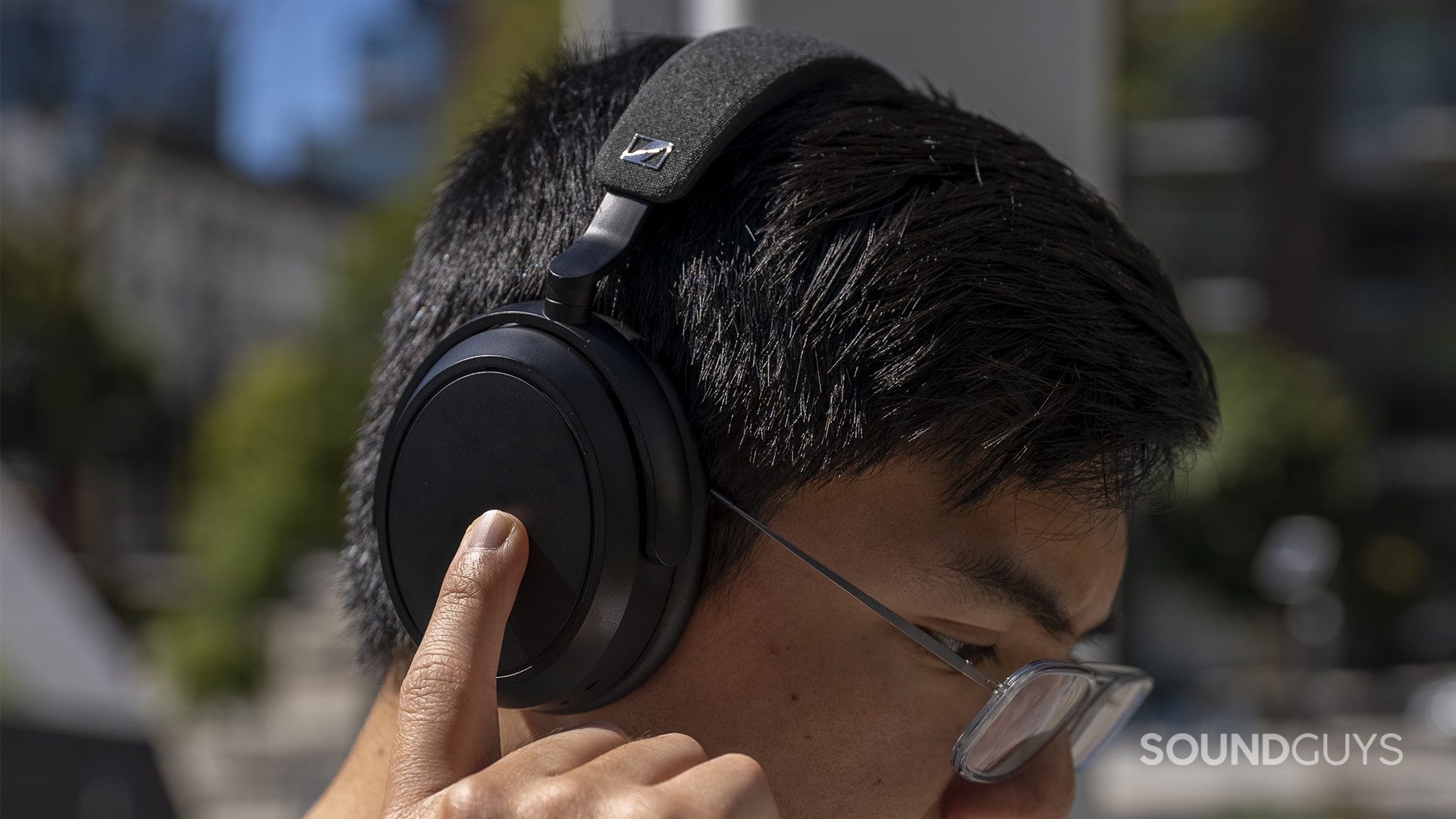
For years now, the main attention-getter in the ANC space has been Sony’s latest release, which is the WH-1000XM5 $387 at Amazon. These headphones cost more than the Shure AONIC 50 (Gen 2) but offer better ANC performance and comfort but with no USB-C audio, fewer Bluetooth codecs, and lesser build quality. Not amazing things to skimp on when you’re spending several hundred dollars on headphones — but it’s much easier to find those cans on sale.
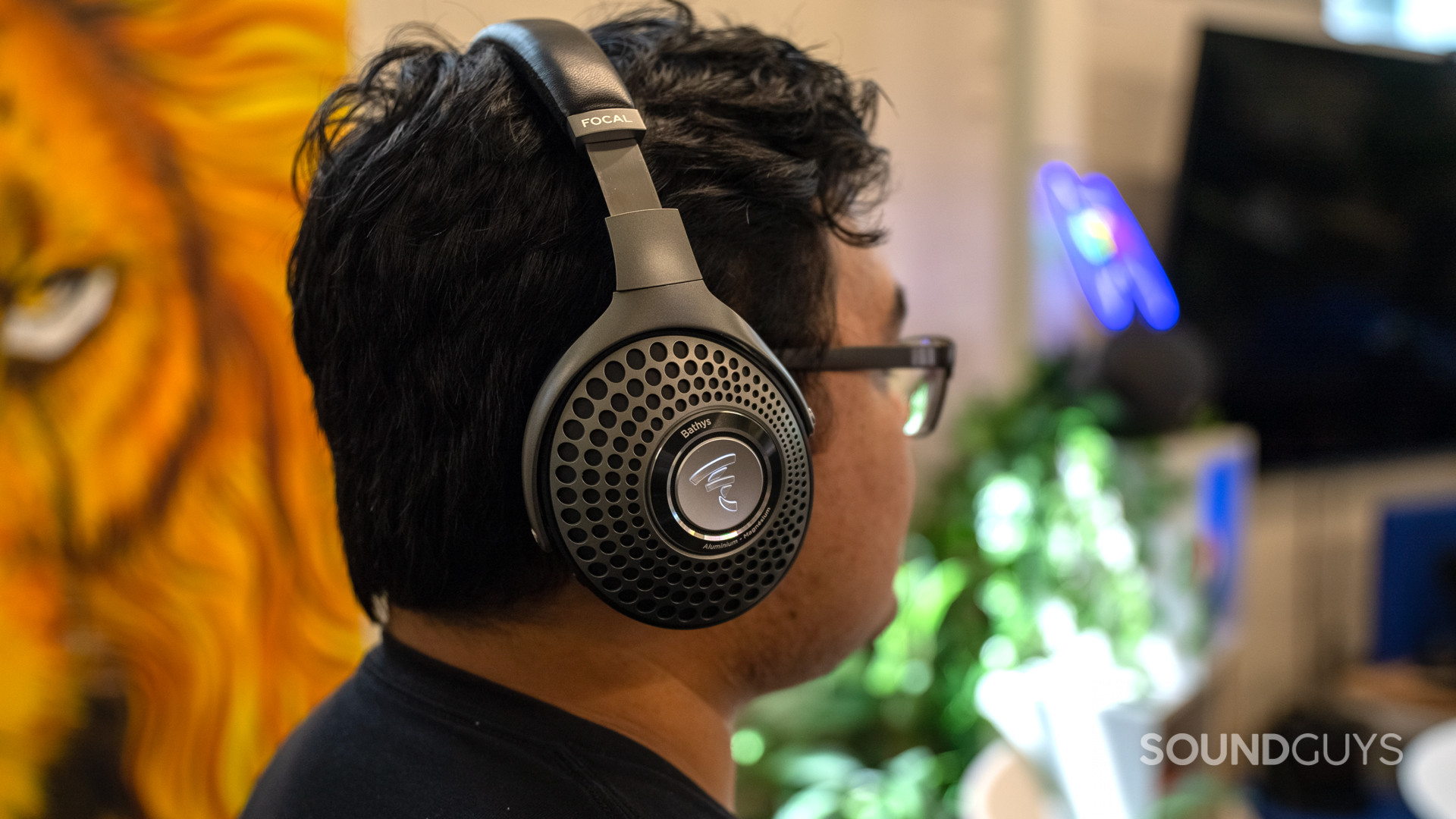
The Focal Bathys are some of the best-sounding ANC headphones that support USB-C audio, period. However, they also come at a higher price of $699 at Amazon. Still, if you have cash to burn, you’ll love them.
Usually, we reserve this space for another recommendation. Still, instead, we’re going to add a word of caution: if you’re looking at the Shure AONIC 50 (Gen 2) because you like the idea of USB audio, you’re not going to find anything in the Apple stable just yet. Currently, the AirPods Max $499 at Amazon doesn’t support USB-C, and the competing Beats headphones — the Beats Studio Pro $349.99 at Amazon— don’t have much to offer that the Shure can’t do better.
Shure AONIC 50 (Gen 2) review: FAQs
When using the wired connection, 39Ω.
No.
Though it would work, I wouldn’t recommend it, as it’s not waterproof. Additionally, it’s a little on the heavy side.
You can use it for gaming as these are good multi-purpose headphones, but you’ll need a dedicated gaming headset if you want gaming-specific features.